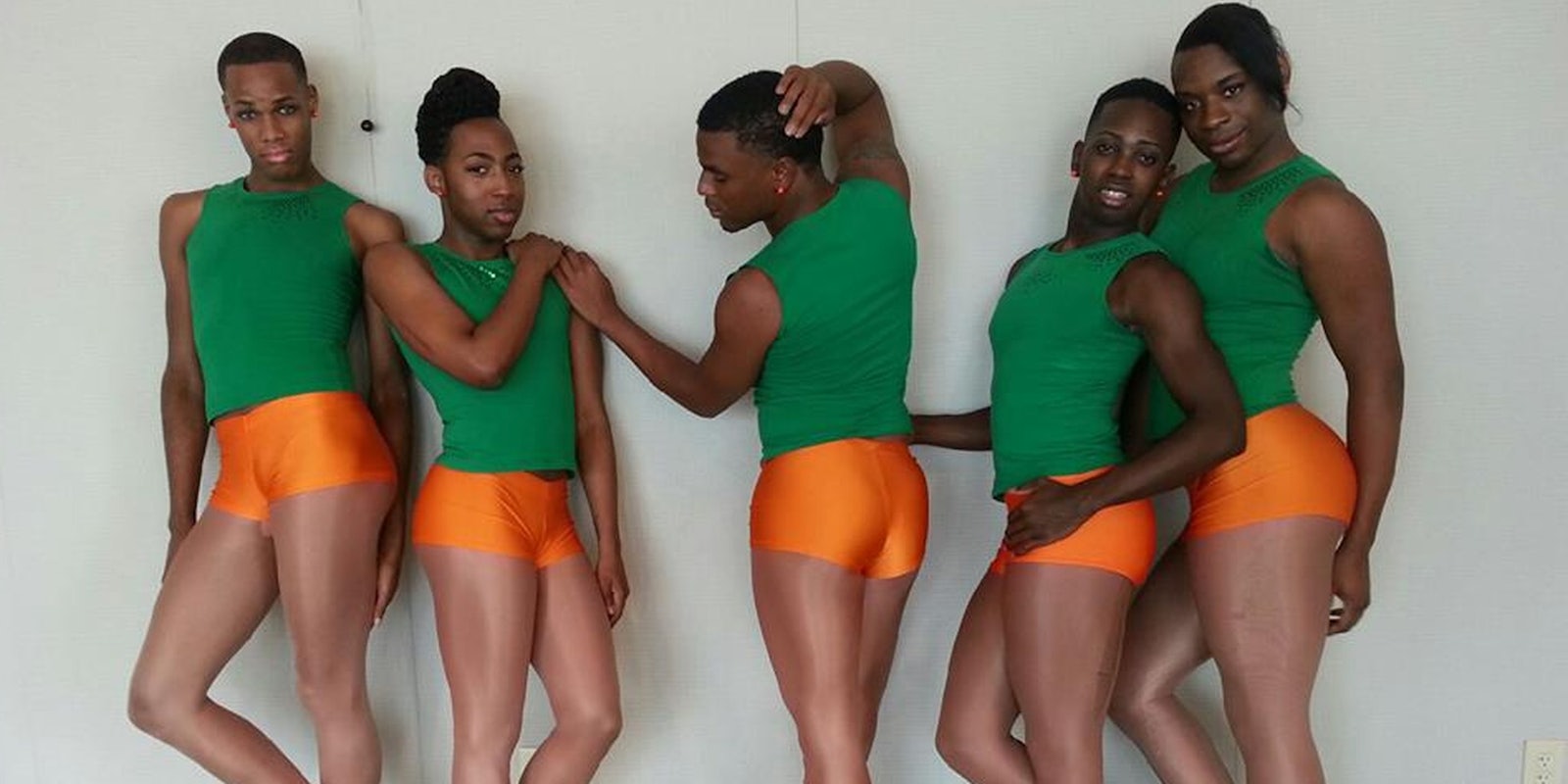The Prancing Elites are subverting the gender norms of cheerleading and dance.
You might have seen their video on YouTube earlier this year, showing six men in orange shorts performing a choreographed dance in the stands at a basketball game, matching pom-poms by their side. In June, Shaquille O’Neal tweeted his celebrity approval to his 7 million followers, and it went viral.
The video from Mobile, Ala.’s all-male dance squad, which now has more than 450,000 views, is from an LGBT basketball game at a local recreation center. Team captain Kentrell Collins said the squad, which currently counts five members, made the pom-poms themselves, using materials from Wal-Mart.
Since that fateful tweet, they’ve been in the public eye a lot more, like their recent appearance on daytime talk show The Real. There’s been talk of a reality show and even a Prancing Elites workout video. They’ve been documenting the journey on Instagram.
The Elites have existed in some incarnation since 2004, and Collins said there’s always been a common thread.
“All of us had a thing where we wanted to dance,” he told the Daily Dot. “We were rejected from the high school dance teams, so we took it upon ourselves to form a team. The only difference is we don’t do it underground; we do it in the public eye.”
Their choreography is influenced by J-Sette, a style of Southern dance that was popularized by Jackson State University’s Prancing J-Settes cheerleading team in the ‘70s, and is identified by quick, stylized, lead-and-follow movements.
“Any time a boy dances like we do, they call it [J-Sette],” Collins explains. “We just call it dancing.”
In the ‘80s and ‘90s, J-Sette started infiltrating gay clubs in Alabama, Mississippi, Georgia, and Florida, and became its own subculture in the South. Type J-Sette into YouTube and you get a visual journey through some of its recent evolution, from Atlanta to Detroit, from the football field to the gay pride parade. Collins said all the Elites identify as queer.
In attempting to take their style from the parking lot to the mainstream, the Elites are claiming ownership over their identity and message, which is important when pop culture attempts to co-opt a subculture. (See: Miley Cyrus and twerking.) Transgender musician Our Lady J breaks it down further on her Tumblr:
“[E]verything interesting in pop culture starts with the queens on the street. And then cis-gendered men sell it to cis-gendered pop stars, who then sell it to the masses. The queens on the street may never collect the coins, but we know where it starts.”
One example: If you’ve seen the video for “Single Ladies,” you’ve seen Beyoncé’s take on J-Sette.
“And I love Beyoncé,” Collins said. “We want to work with her in the future, but people thought she created it in 2008. It rubbed a lot of people in our community the wrong way, because we didn’t get credit.”
With their recent viral popularity, they have a chance to reclaim it. Shaq’s endorsement no doubt put them in front of a larger audience. Collins said there are those who are less tolerant of the group and what they represent, but they are positively riding this momentum. He listed their goals for the rest of 2013:
“To meet Oprah, work with Beyoncé, and go on the Wendy Williams show.”
Photo via Prancing Elites/Facebook


